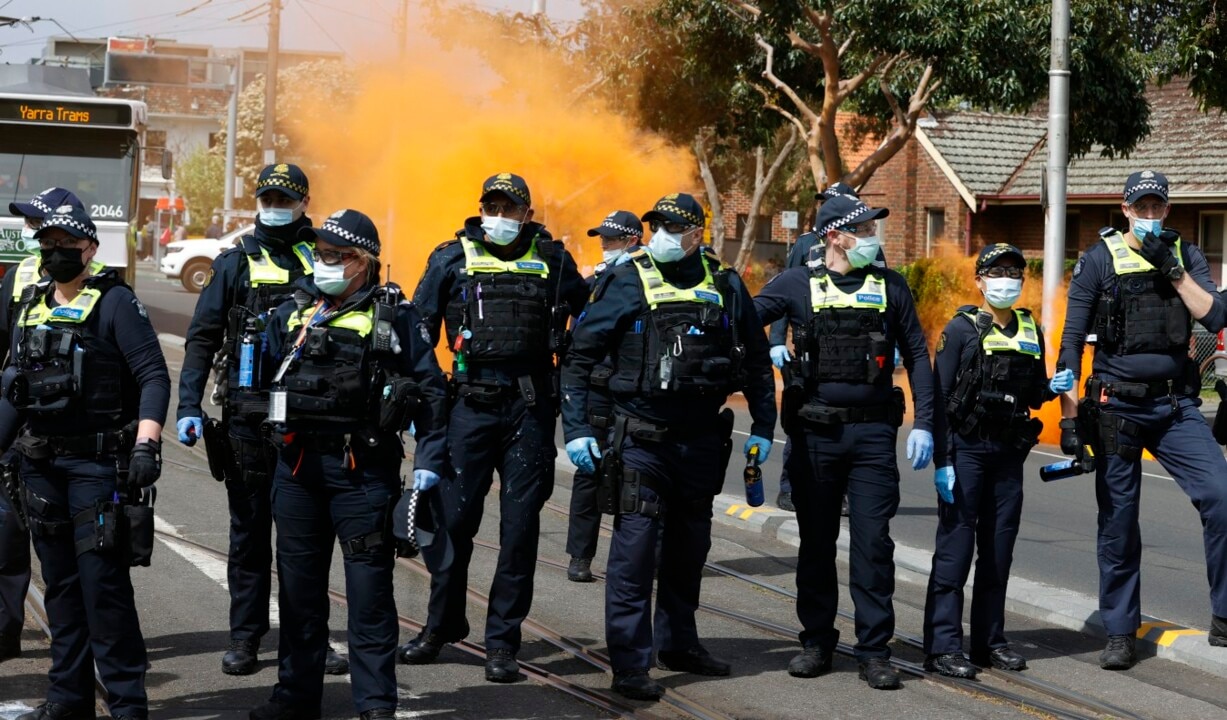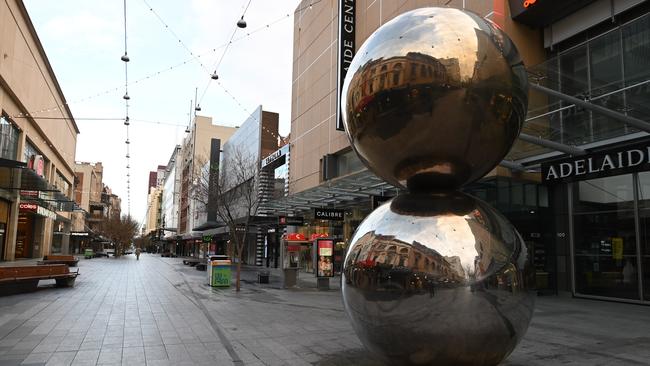July’s lockdown cost SA more than $440m and had a severe mental health impact, Business SA says
The cost of the seven-day lockdown in July was hundreds of millions, Business SA says, but the pain was not equally shared.

South Australia’s week-long lockdown cost the economy up to $446m and had a negative mental health impact on more than 70 per cent of business owners surveyed, research conducted by Business SA shows.
The state’s pre-eminent business organisation said a survey of 435 of its members showed that more than 90 per cent of those polled lost revenue as a result of the lockdown, with construction, manufacturing, retail trade and accommodation and food services the most heavily impacted.
Some businesses were able to bounce back more quickly however, with areas such as construction, which were not hampered by extended restrictions more able to recoup losses.
“The reintroduction of a general 25 per cent (12.5 per cent for gyms and fitness centres) capacity limit following the lockdown was consistently raised by businesses as a barrier to recovery, with many questioning the logic given the lack of community transmission
at the time,’’ the report says.
“Moreover, businesses reported the impact that lockdowns have on consumer confidence in the subsequent weeks as further inhibiting recovery.’’
Revenue losses ranged from a median of $10,000 for employers in the cultural and recreational services sector to $45,000 for the construction sector, while median direct costs for all businesses under $2m turnover were $3500, compared to $25,000 for businesses turning over more than $2m.

Business SA director, policy and advocacy, Andrew McKenna, said almost 40 per cent of businesses expected not to be able to recover lost revenue, and future government support packages needed to reflect the fact that the pain was not shared equally.
“We are not arguing the lockdown should never have happened, but we are asking governments to consider the wide range of financial impacts on businesses when determining future financial support packages,” he said.
While the construction sector had the largest median revenue impact at $45,000, it was also the most likely to be able to bounce back, while other areas such as hospitality and gyms were hampered by restrictions.
“Businesses in (the construction) sector were predominantly unhampered by restrictions post-lockdown,’’ the report says.
“However, when we compare this to employers operating in the accommodation and food services sector, the median expected revenue recovery calculated was zero.’’
On the cost front, wages and rent were the most challenging to avoid.
“In particular, we found that ... three in five businesses across the hospitality, retail and personal care services nominated rent as their most challenging cost, all sectors with relatively high occupancy costs,’’ the report says.
“After further consultation with businesses operating in these sectors, Business SA discovered many found it difficult to approach landlords for support or consideration for the lockdown.’’
The survey also found that 73 per cent of business owners and managers experienced a negative mental health impact as a result of the lockdown.
One sole trader who responded to the survey said anonymously that it was unfair that larger companies and the AFL appeared to be getting preferential treatment, while a number indicated they were considering closing their businesses.
“The logic of it we understand, but when there are no reserves left financially, emotionally or physically there is little motivation,’’ one respondent said.
“We get knocked down again and yet we are here to help ourselves get back up again. It’s exhausting with no end in sight.”
The State Government put in place $3000 grants for employing businesses and $1000 for non-employing businesses which had a revenue fall of more than 30 per cent as a result of the July lockdown, followed by a number of top-up grants and further industry specific assistance, with a high range of up to $100,000 for organisers of cancelled or postponed major events.






To join the conversation, please log in. Don't have an account? Register
Join the conversation, you are commenting as Logout